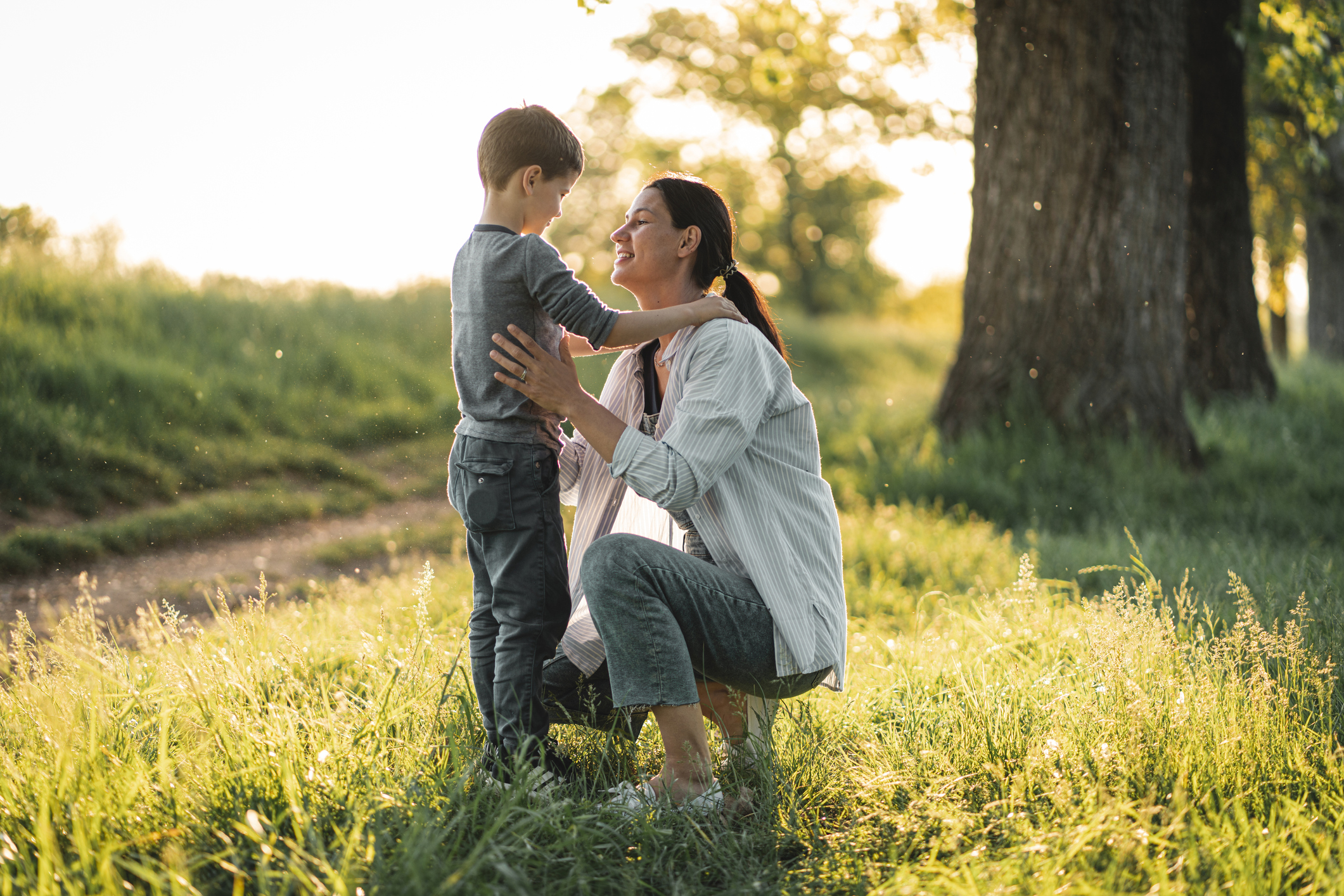“Give this package to the mailman,” I said. “He’s across the street.” Petrified, my child started to whine. “You can do this,” I continued. “The mailman’s really nice.” My child whined some more, expressed some dislike for me, then headed out with the package. In the silence that followed, I felt the frustration hit me. It’s not like I asked for the moon!
There’s a lot we can do to help kids grow up with resilience and drive. But the road to adulthood is never smooth. There are times when we’re going to feel frustrated with what our kids are going through and we’re going to wonder if we’re doing the right thing. But based on the work of clinical neuropsychologist William Stixrud and educator Ned Johnson, there’s reason for hope. Here are 7 things to tell yourself when parenting is hard.
1. My child is his own person.
Even though there might be some frustration or sadness when our kids choose a sport, a style, or an attitude unlike our own, we should be grateful our kids are making decisions at all. That shows character and confidence. Parenting is hard, but if we can accept who our children are, we might be able to enjoy them more without all the pressure to do things our way. I know that helped with my kids.
2. I can encourage but can’t force her to do the right thing.
Every day, I drop off my daughter for school. While she’s away from me, I hope and pray she does what she’s told and is a good friend to others. But our kids ultimately can choose whether to follow our rules. Even with threats (“If you don’t eat your broccoli, no dessert for you!”), our kids ultimately have a choice. What we can do is lead by example, teach our values, and pray. Yes, parenting is hard. But let’s give our kids room to choose the right thing.
3. It’s not my responsibility to make sure everything goes well for my child.
Are you frustrated that your child complains a lot? Or gives up too easily? When these things happen, we naturally want to step in and help. But it’s not always the best move. Recently, my son wrestled with algebra. When I couldn’t help, I felt bad. But he struggled and made progress on his own. The thing I learned is that struggles aren’t all bad. They build our kids’ resilience and show them what they’re capable of.
4. It’s OK if my child’s unhappy with me.
It doesn’t feel good when your child’s mad or says she hates you. But it’s also not realistic for her to always be happy. Being unhappy can actually be good for your child. Even though it stings when our children say hurtful things to us or stomp away in anger, remind yourself she’s growing during this time. She can’t work through her feelings or gain any humility if you jump in and give her what she wants.
5. My child has to learn how to handle disappointment.
“Can we get ice cream?” my son asked as we drove through town. A few kids from his school sat outside with cones, and it looked fun. “Not today,” I said. He pouted a bit, but by the time we pulled into the driveway, he’d moved on. Parenting is hard, and knowing what to do isn’t always easy. But letting your child handle disappointment now is practice for disappointments later in life.
6. I shouldn’t sacrifice my own well-being for my child.
“Go work out,” my husband told me as I eyed my daughter, still picking at her dinner. “He shooed me out of the kitchen, and I hurried to change. Sometimes, we think we need to spend all our free time with them, but truthfully, it’s not good for our kids or us. They can be with their dad or play on their own. We all need balance in our lives to feel mentally and physically well.
7. My child’s stuck now, but it’s not going to be forever.
Your child at 8 isn’t going to be the same person at 18 or 28. So much is going to change! So, don’t lose hope if you feel he’s not where he should be. As Stixrud and Johnson assure us in The Self-Driven Child, “Life isn’t a race, and the world is full of late bloomers.” The brain is still developing, and a lot will continue to change. Enjoy your child for who he is in this moment.
What part of parenting is hard for you?










